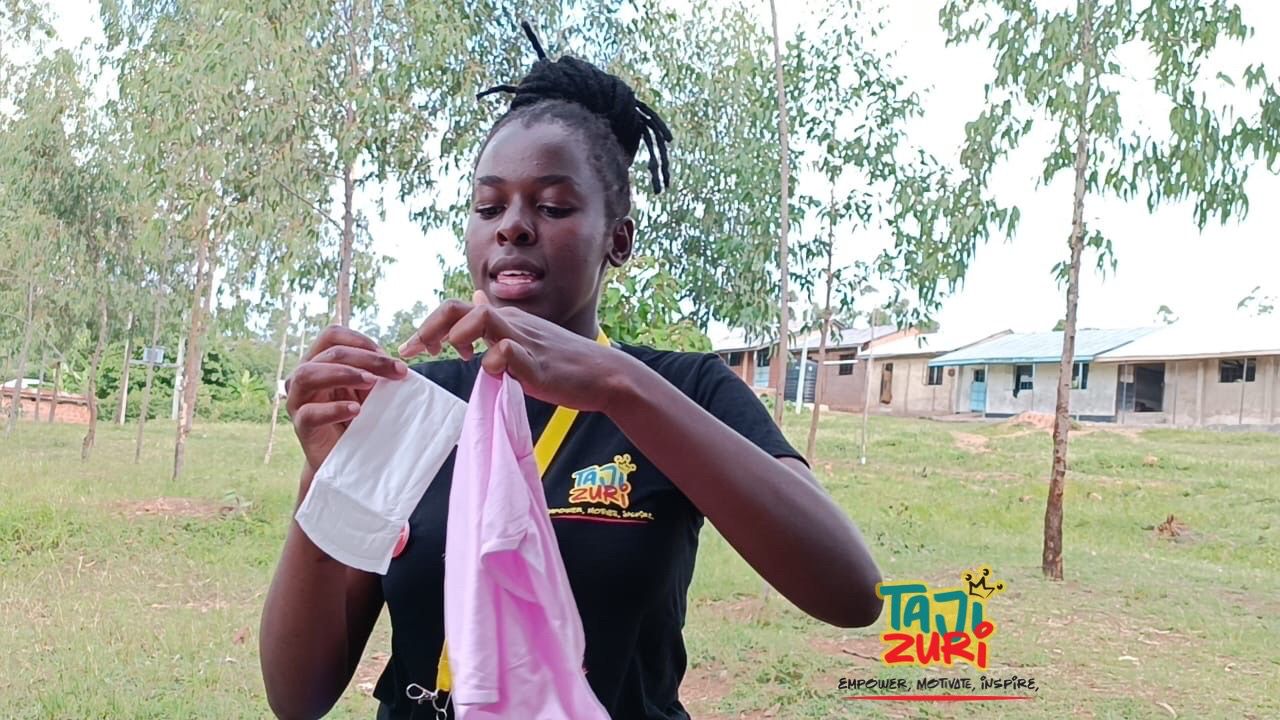Introduction
Menstrual hygiene management (MHM) is a fundamental aspect of public health, gender equality, and human rights. Despite being a natural biological process, menstruation remains a significant challenge for many individuals due to stigma, lack of access to sanitary products, inadequate sanitation facilities, and limited knowledge.
Globally, about 500 million women and girls lack adequate facilities for menstrual hygiene management. According to UNICEF and WHO, many in low-income countries cannot afford or access proper sanitary products, leading to unsafe alternatives such as rags, newspapers, or even leaves. This lack of proper menstrual care contributes to school absenteeism, health complications, and the reinforcement of gender inequalities.
In Africa, menstrual hygiene remains a pressing concern, especially in rural areas. A UNESCO report found that one in ten girls in Sub-Saharan Africa misses school during menstruation, amounting to significant educational setbacks. Many African countries have limited infrastructure, and cultural taboos prevent open discussions about menstruation, further complicating the issue.
In Kenya, menstrual hygiene is increasingly recognized as a national priority. The government has made strides in providing free sanitary pads to schoolgirls through the Free Sanitary Towels Programme. However, challenges persist, including inconsistent distribution, poor disposal systems, and deeply rooted cultural stigma that affects girls’ confidence and participation in school.
At the county level, Homa Bay has seen initiatives from NGOs and local governments aiming to improve menstrual health. Programs focus on providing reusable sanitary pads, constructing proper sanitation facilities in schools, and raising awareness through community outreach programs. However, gaps in funding, education, and accessibility remain significant challenges.
Justification for Investment in Menstrual Health
Investing in menstrual health is crucial for multiple reasons:
- Education and Empowerment –Menstrual stigma, inadequate sanitation facilities and lack of products causes many girls to miss school during their period day, leading to poor academic performance and higher drop- out rates, where some resort to transactional sex to obtain these essentials which later lead to early pregnancies and sexually transmitted infections.
Ensuring access to menstrual products and education reduces school absenteeism and promotes equal learning opportunities for girls.
- Health and Well-being –Lack of access to proper menstrual hygiene products and facilities leads to infections and reproductive health issues. Proper menstrual hygiene prevents infections such as urinary tract infections (UTIs) and reproductive health complications.
Investing in menstrual health ensures access to safe, hygienic products and clean sanitation facilities.
- Gender Equality –Menstrual stigma perpetuates discrimination, shame and exclusion.
Addressing menstrual health fosters gender equality by challenging societal taboos and empowering women to participate fully in social and economic activities. It also aligns with Kenya’s commitments to gender equality under the Sustainable Development Goals.
- Economic Impact – Investing in Menstrual Health aligns with Sustainable Development Goals thus attracting international funding and partnerships.
Women who manage menstruation safely and with dignity can engage in productive work, boosting economic development.
- Environmental Sustainability – Investments in eco-friendly menstrual products, such as reusable pads and menstrual cups, contribute to sustainable waste management practices which supports environmental conservation efforts.
Breaking the Stigma: Empowering Girls with Menstrual Health Knowledge
One of the most effective ways to tackle menstrual health challenges is through education. Tajizuri’s way of Breaking the stigma surrounding menstruation involves:
- Comprehensive Menstrual Health Education – Engaging both boys and girls in menstrual health education and ensuring they understand the biological and social aspects of menstruation which fosters understanding and reduces stigma. This encourages a supportive environment at school and home.Open discussions about menstrual health encourages confidence and normalizes periods as a normal biological process.
Menstrual Health education enhances self-confidence and emotional well-being as many girls experience fear and anxiety during their first period. Providing information helps them feel prepared and in control and gain confidence.
- Media Campaigns – Leveraging social media, and radio thus spread awareness, challenges myths and promotes a positive discourse on menstruation.
- Policy and Advocacy – Tajizuri implements policies that support menstrual health education, free sanitary products, and proper sanitation infrastructure in schools.
Empowered girls become advocates for better menstrual health policies thus ensuring future generations benefit from improved awareness and access.
- Support Groups and Peer Education – Creating safe spaces where girls can share experiences and support each other can help build confidence and reduce stigma associated with menstruation. This helps dispel harmful misconceptions.
- Promoting proper hygiene practices: Teaching girls’ about safe and hygienic menstrual management reduces the risk of infections. This includes using clean and safe sanitary products, Proper disposal of sanitary pads, Regular changing of menstrual products to prevent infections and washing hands before and after changing products.
Conclusion
Menstrual hygiene is a crucial issue that affects education, health, and gender equality worldwide. Addressing it requires a multi-faceted approach, including increased investment, policy reforms, and breaking social stigma. By ensuring access to menstrual products, improving sanitation, and educating communities, we can create a world where menstruation is not a barrier to opportunity but a normal and dignified aspect of life.
Research summarized by: Abongo Emily
Research reviewed by: Tatiana Nadongo




